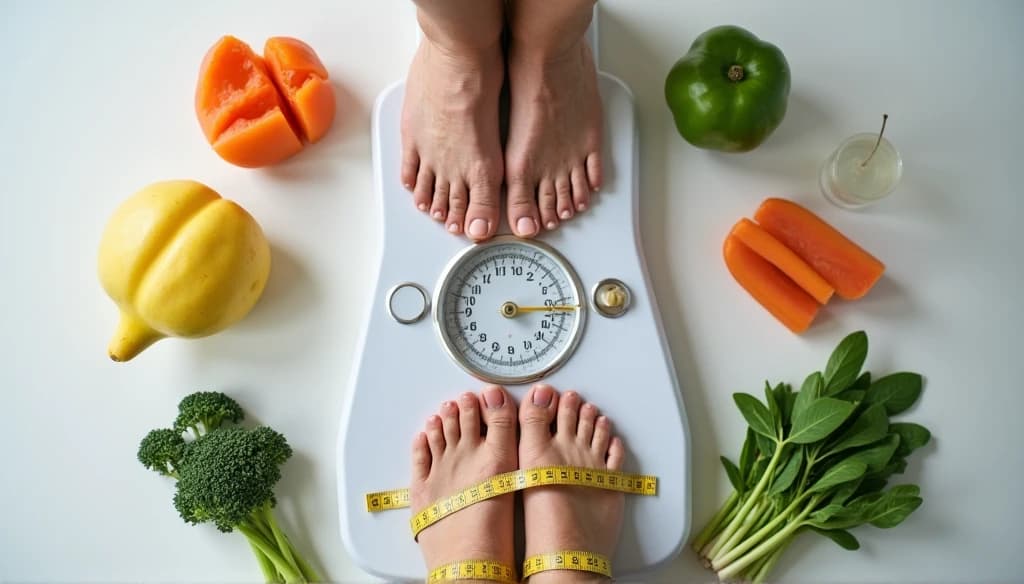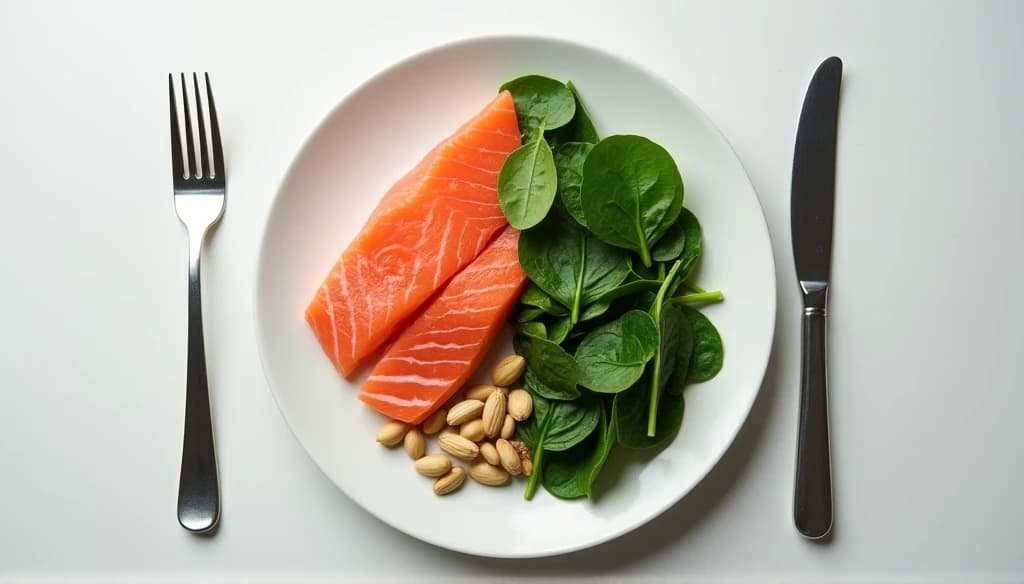Table of Contents
ToggleConfused about whether the keto diet is safe for seniors? You’re not alone! With so much conflicting information out there, it’s hard to know whether this low-carb, high-fat diet is a good idea for older adults. In this guide, we’ll explore everything you need to know about the keto diet for seniors and whether it’s the right choice for you or your loved ones.
What is the Keto Diet?

The ketogenic diet, or keto diet, is a low-carbohydrate, high-fat diet that drastically reduces carbs and replaces them with fats. This reduction in carbohydrates puts your body into a metabolic state called ketosis, where your body becomes incredibly efficient at burning fat for energy instead of carbohydrates.
Why the Keto Diet is Gaining Popularity Among Seniors
Seniors are increasingly turning to the keto diet to address common health issues such as weight gain, chronic diseases, and cognitive decline. But why? Here are a few reasons:
Weight Management

As we age, it becomes more difficult to maintain a healthy weight. The keto diet’s ability to promote weight loss by burning fat can be especially beneficial for seniors looking to maintain or reduce their weight.
Improved Energy Levels
Many seniors report feeling more energetic on a keto diet. Since fat is a more efficient fuel source than carbohydrates, seniors may experience more sustained energy throughout the day.
Cognitive Benefits
There is growing evidence that a ketogenic diet can offer cognitive benefits, including improved memory and mental clarity. This could be especially important as seniors face an increased risk of cognitive decline and diseases like Alzheimer’s.
Potential Health Benefits of the Keto Diet for Seniors
While the keto diet is often associated with weight loss, there are many other potential health benefits that can be particularly advantageous for seniors:
Blood Sugar Control and Type 2 Diabetes

Studies have shown that a ketogenic diet can help regulate blood sugar levels and improve insulin sensitivity, which is crucial for seniors managing or at risk of Type 2 diabetes.
Heart Health
Contrary to popular belief, the keto diet may actually improve heart health by increasing good cholesterol (HDL) and lowering bad cholesterol (LDL) levels. However, this can depend on the types of fats consumed.
Reduced Inflammation
Inflammation is a common issue for seniors and is linked to many chronic conditions like arthritis and cardiovascular disease. The keto diet has anti-inflammatory properties that can help reduce systemic inflammation.
Risks and Considerations for Seniors on the Keto Diet
While the keto diet offers many benefits, it’s essential to be aware of the risks, especially for seniors with pre-existing health conditions.
Nutritional Deficiencies

One of the main concerns with the keto diet is the potential for nutritional deficiencies. Cutting out entire food groups, particularly fruits, grains, and legumes, can lead to a lack of essential vitamins and minerals like potassium, magnesium, and fiber.
Kidney Health
Seniors with pre-existing kidney issues should approach the keto diet with caution. The high fat and protein intake can place additional strain on the kidneys, leading to complications.
Heart Disease
While the keto diet can improve cholesterol levels for some, it may also increase the risk for others, especially if the wrong types of fats (like saturated fats) are consumed. A heart-healthy variation of the keto diet, focusing on unsaturated fats like olive oil and avocados, is recommended for seniors.
How to Safely Begin the Keto Diet as a Senior

If you or a loved one is considering starting the keto diet, here are a few tips to ensure a safe transition:
Consult a Healthcare Professional
Before making any significant dietary changes, it’s crucial to consult your healthcare provider. They can help you determine if the keto diet is appropriate for your specific health needs.
Focus on Healthy Fats
Seniors should prioritize healthy fats, such as those found in avocados, olive oil, and fatty fish. Avoid processed and trans fats, which can negatively impact heart health.
Stay Hydrated
The keto diet can lead to dehydration, especially in the early stages. Make sure to drink plenty of water and consider adding electrolytes to your diet.
Monitor Nutrient Intake
Because the keto diet can cause some nutrient deficiencies, consider taking supplements or incorporating keto-friendly foods rich in vitamins and minerals, such as leafy greens, nuts, and seeds.
Keto Diet Meal Plan for Seniors
Here’s a simple, senior-friendly keto meal plan to get started:
| Meal | Food |
|---|---|
| Breakfast | Scrambled eggs with spinach and avocado, cooked in olive oil |
| Lunch | Grilled salmon with a side of leafy greens and olive oil dressing |
| Snack | A handful of almonds or macadamia nuts |
| Dinner | Chicken thighs roasted with vegetables like zucchini and cauliflower |
| Dessert | A small serving of berries with whipped cream (unsweetened) |
Conclusion: Is the Keto Diet Right for Seniors?
The keto diet offers numerous potential benefits for seniors, including weight loss, improved cognitive function, and better blood sugar control. However, it also comes with risks, such as nutritional deficiencies and potential strain on the kidneys and heart.
Before starting the keto diet, seniors should consult a healthcare provider to ensure it’s the right fit for their individual needs. Following a balanced, heart-healthy version of the keto diet, along with regular monitoring, can help seniors safely enjoy its many potential benefits.
Bonus Section: Comparative Table – Keto vs. Other Diets for Seniors
| Diet | Main Focus | Carb Intake | Fat Intake | Recommended For |
|---|---|---|---|---|
| Keto | High fat, low carb | 20-50g per day | High (70-80% of diet) | Seniors looking for weight loss, blood sugar control |
| Mediterranean | High in healthy fats and whole grains | Moderate (40-50% of diet) | Moderate | Seniors focused on heart health |
| DASH | Low sodium, high in fruits/veggies | Moderate (55-60% of diet) | Low to moderate | Seniors with high blood pressure |
| Paleo | Whole foods, no processed carbs | Moderate (40-50%) | Moderate to high | Seniors focusing on whole, unprocessed foods |
Final Thoughts
The keto diet can be a powerful tool for seniors when tailored to their unique health needs. By focusing on healthy fats, staying hydrated, and ensuring sufficient nutrient intake, seniors can experience the benefits of ketosis while minimizing risks.
FAQs About the Keto Diet for Seniors
Is the keto diet safe for seniors over 60?
Yes, but with caution. Seniors should consult their doctor before beginning the keto diet, especially if they have existing health conditions such as heart disease, diabetes, or kidney issues.
How long does it take for seniors to see results on a keto diet?
Most people, including seniors, begin to see results within 2-4 weeks. These results can range from weight loss to improved mental clarity and energy levels.
Can the keto diet help with arthritis in seniors?
Yes, the keto diet’s anti-inflammatory effects may help reduce arthritis symptoms. However, more research is needed to confirm its long-term benefits for joint health.
How many carbs should seniors eat on a keto diet?
Typically, the keto diet limits carbohydrate intake to about 20-50 grams per day. Seniors should work with a healthcare professional to find the right balance.
Can seniors with high cholesterol follow a keto diet?
Yes, but it’s essential to focus on heart-healthy fats, such as those found in avocados, nuts, and olive oil, rather than saturated fats from processed foods.





